Pixel 4 vs. iPhone 11: Which Affordable Flagship Will Win?
Google and Apple face off
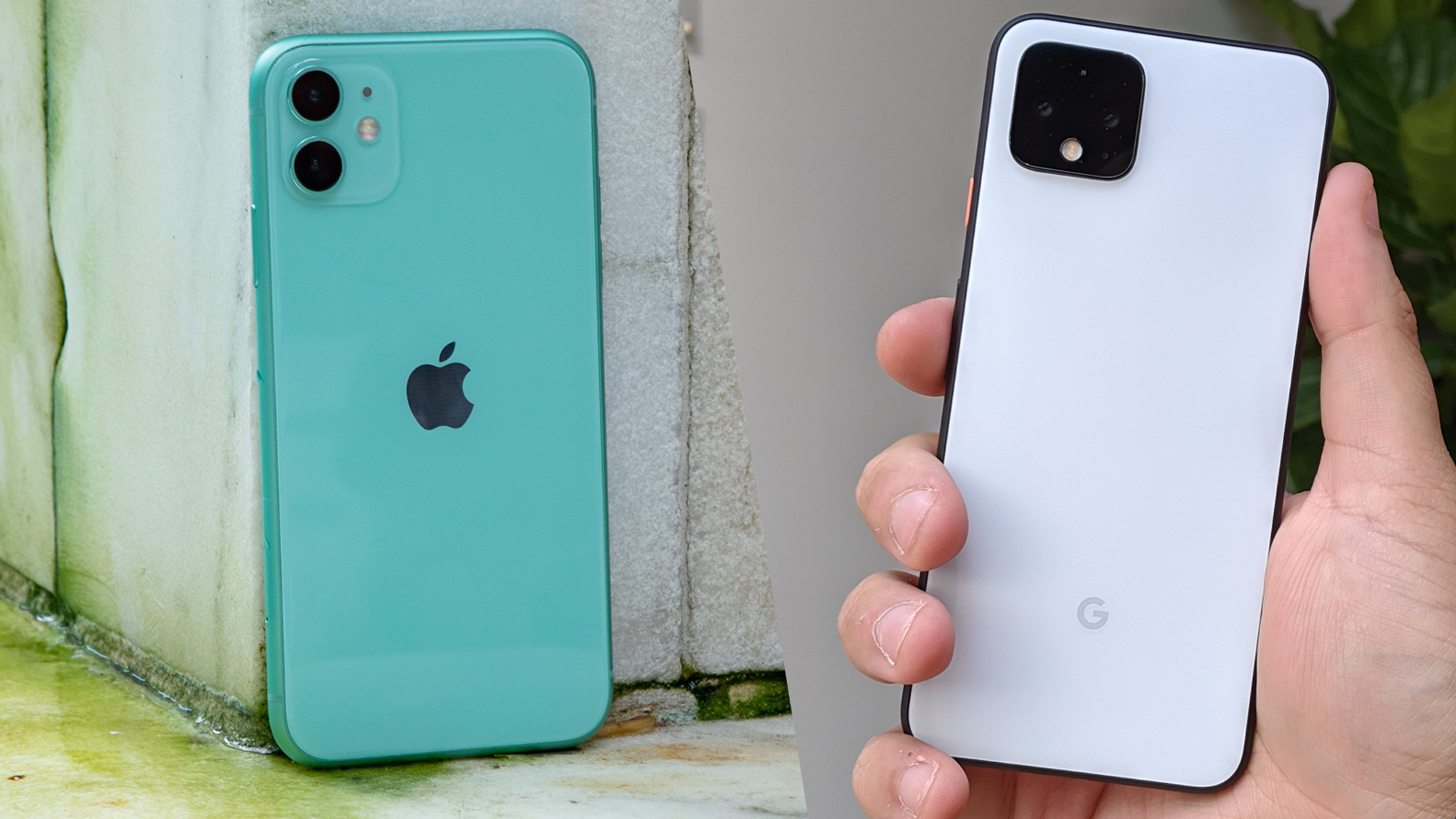
The Pixel 4 is Google's most ambitious phone yet, and it's also the first Pixel phone being sold across all of the major carriers. And it's easy to see why AT&T, Sprint, T-Mobile and Verizon all want Google's latest device. For those who prefer Android, the Pixel 4 is a great alternative to the iPhone 11, with highly capable dual rear cameras, a face unlock feature that promises to be faster than Apple's Face ID and an improved Google Assistant that runs circles around Siri.
But the iPhone 11 is one of the best phones for the money for a reason. It also boasts great cameras along with blazing performance from its A13 chip, plus a larger display than the Pixel 4 and a bigger battery. And at $699, the iPhone 11 is $100 cheaper than Google's flagship.
So which device will win the affordable flagship phone battle? Our Pixel 4 vs. iPhone 11 face-off will show you how these two handsets are stacking up.
Pixel 4 vs. iPhone 11 specs
| Row 0 - Cell 0 | iPhone 11 | Pixel 4 |
| Starting Price | $699 | $799 |
| Screen Size (Resolution) | 6.1-inch Super Retina LCD (1792 x 828) | 5.7-inch (Full HD+) with 90Hz refresh rate |
| CPU | A13 Bionic | Qualcomm Snapdragon 855 |
| RAM | Unknown (reportedly 4GB) | 6GB |
| Storage | 64GB, 256GB, 512GB | 64GB, 128GB |
| microSD? | No | No |
| Rear Cameras | 12-MP wide (f/1.8), 12-MP ultra wide (f/2.4) | 12-MP wide-angle (f/1.7), 16-MP telephoto (2.4) |
| Front Camera | 12-MP (f/2.2) | 8-MP (1080p video) |
| Battery | 3110 mAh | 2800 mAh |
| Colors | Black, Green, Yellow, Purple, Red, White | Just Black, Clearly White, Oh So Orange |
| Size | 5.94 x 2.98 x 0.33 inches | 5.7 x 2.7 x 0.3 inches |
| Weight | 6.84 ounches | 5.7 ounces |
Pixel 4 vs. iPhone 11 price and availability
The Pixel 4 starts at $799 for 64GB of storage and goes up to 128GB of storage for $899. The iPhone 11 has a cheaper starting price of $699 for 64GB, and you can upgrade to 128GB for $749, which is still $50 cheaper than the Pixel 4.
Apple also offers a 256GB model for $849, while the Pixel 4 maxes out at 128GB.
In terms of availability, you can get the iPhone 11 and Pixel 4 through every major carrier or unlocked. See our iPhone 11 deals and Pixel 4 deals pages for the latest discounts.
Early winner: iPhone 11
Pixel 4 vs. iPhone 11 design
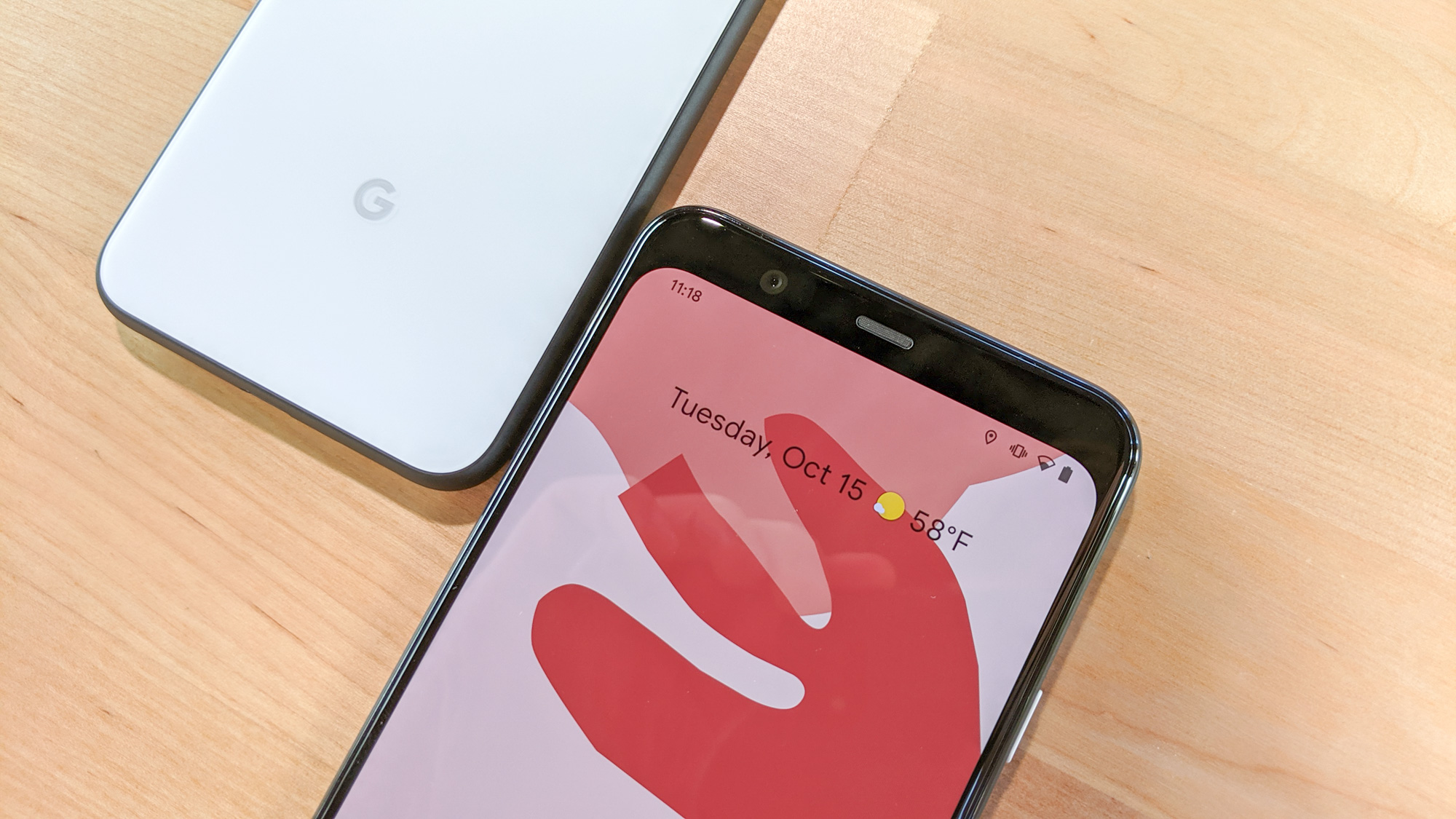
When it comes to style, the iPhone 11 stands out with more color options. You can take your pick from black, yellow, green, purple, red and white. Google offers only three hues in Just Black, Clearly White and Oh So Orange. We do like the matte backs on the white and orange versions of the Pixel 4, but the black model is glossy. All of the iPhone 11 models have a glossy rear.
The iPhone 11 has a notch at the top, but its overall aesthetic from the front looks sleeker than the chunky forehead on the Pixel 4. Google's phone almost looks like a throwback.
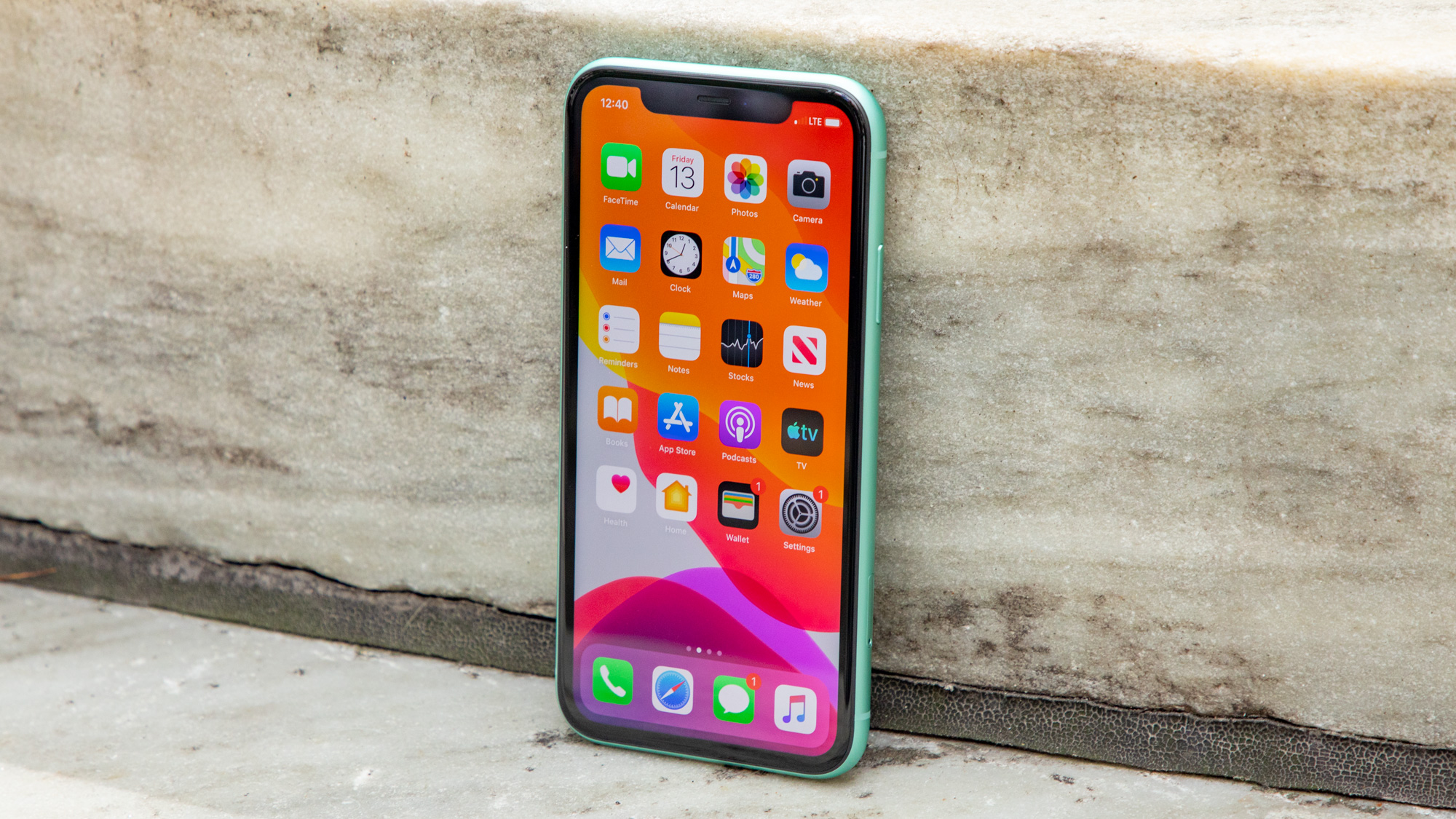
The Pixel 4 is the phone to get for those who want to use a phone easily with one hand. Its smaller 5.7-inch display gives it a more compact design than the 6.1-inch iPhone 11. The Pixel 4 weighs just 5.7 ounces and measures 5.7 x 2.7 x 0.3 inches, compared to a heftier and larger 6.84 ounces and 5.94 x 2.98 x 0.33 inches for the iPhone 11.
Early winner: iPhone 11
Pixel 4 vs. iPhone 11 display

Although it's smaller, the Pixel 4's 5.7-inch display has two key advantages over the iPhone 11's 6.1-inch screen. First, the Pixel 4's panel uses OLED technology, which tends to offer richer colors, perfect blacks and wider viewing angles than LCDs like the one on the iPhone 11.
Second, the Pixel 4 benefits from a 90-Hz refresh rate for its display, which means smoother scrolling and overall more responsive performance. The Pixel 4 is also smart enough to scale its refresh rate down based on the what you're doing on screen.
So how about resolution? The Pixel 4 has a full HD+ resolution at 444 pixels per inch (ppi). The iPhone 11 has a resolution of 1792 x 828 pixels at a lower 326 ppi.
The iPhone 11's display proved bright and accurate in our testing, but we still need to test the Pixel 4 in our labs to see exactly how it measures up.
Early winner: Pixel 4
Pixel 4 vs. iPhone 11 cameras
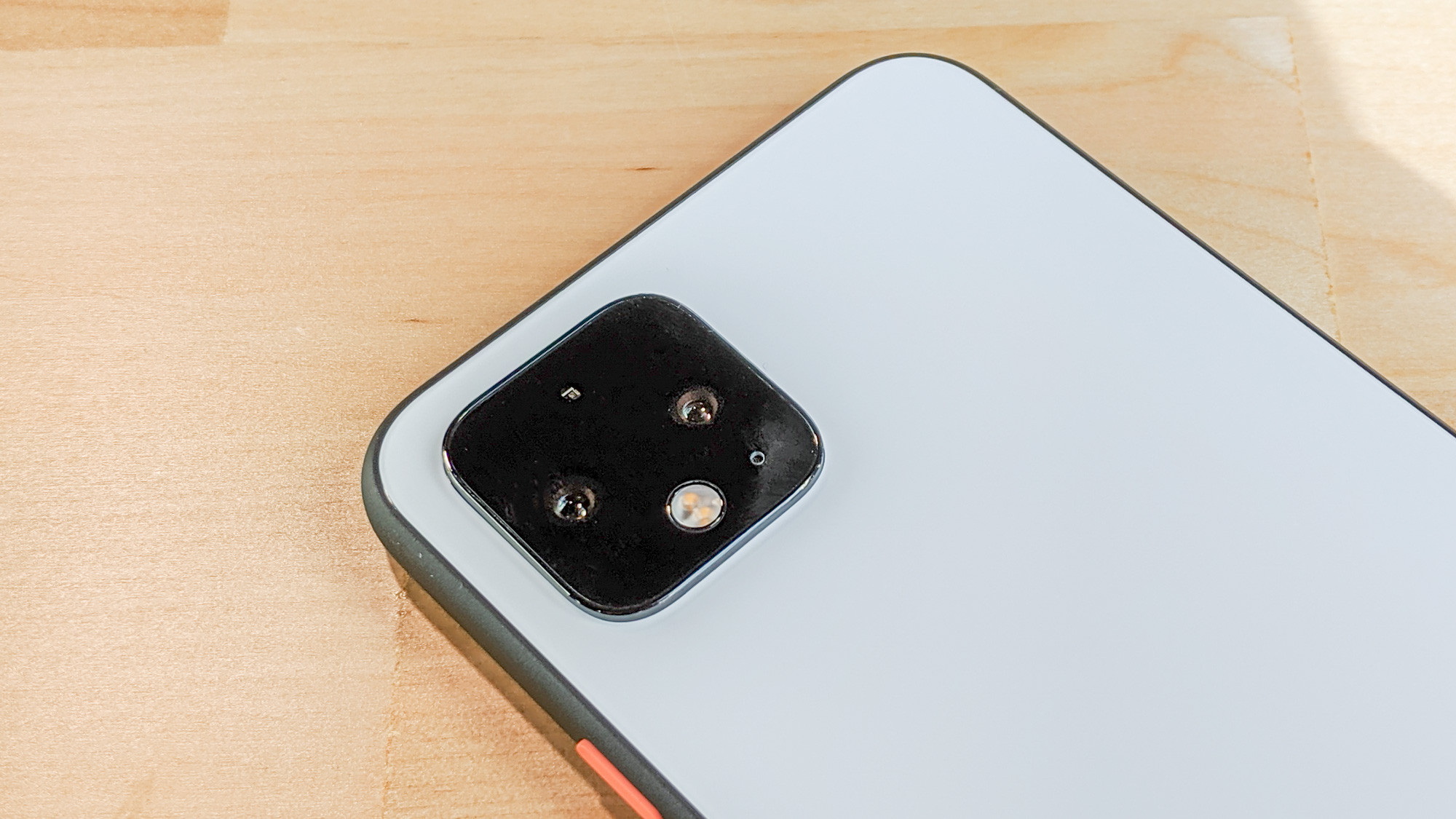
Both the Pixel 4 and iPhone 11 sport two rear cameras, but these phones take a different approach to photography in the battle for best camera phone.
The Pixel 4 features a 12-MP main wide camera with a f/1.7 aperture and a 16-MP telephoto lens with 2x optical zoom and and f/2.4 aperture. But Google says with its Super Res Zoom software, you can zoom in much further and still capture a great amount of detail.
The iPhone 11 has a 12-MP wide-angle camera with an aperture of f/1.8 and Apple pairs that with a 12-MP ultra-wide camera that has a 120-degree field of view and f/2.4 aperture. This second camera allows you to get more dramatic photos, pulling back to fit in more the scene. It's up to you which secondary lens holds the most value.
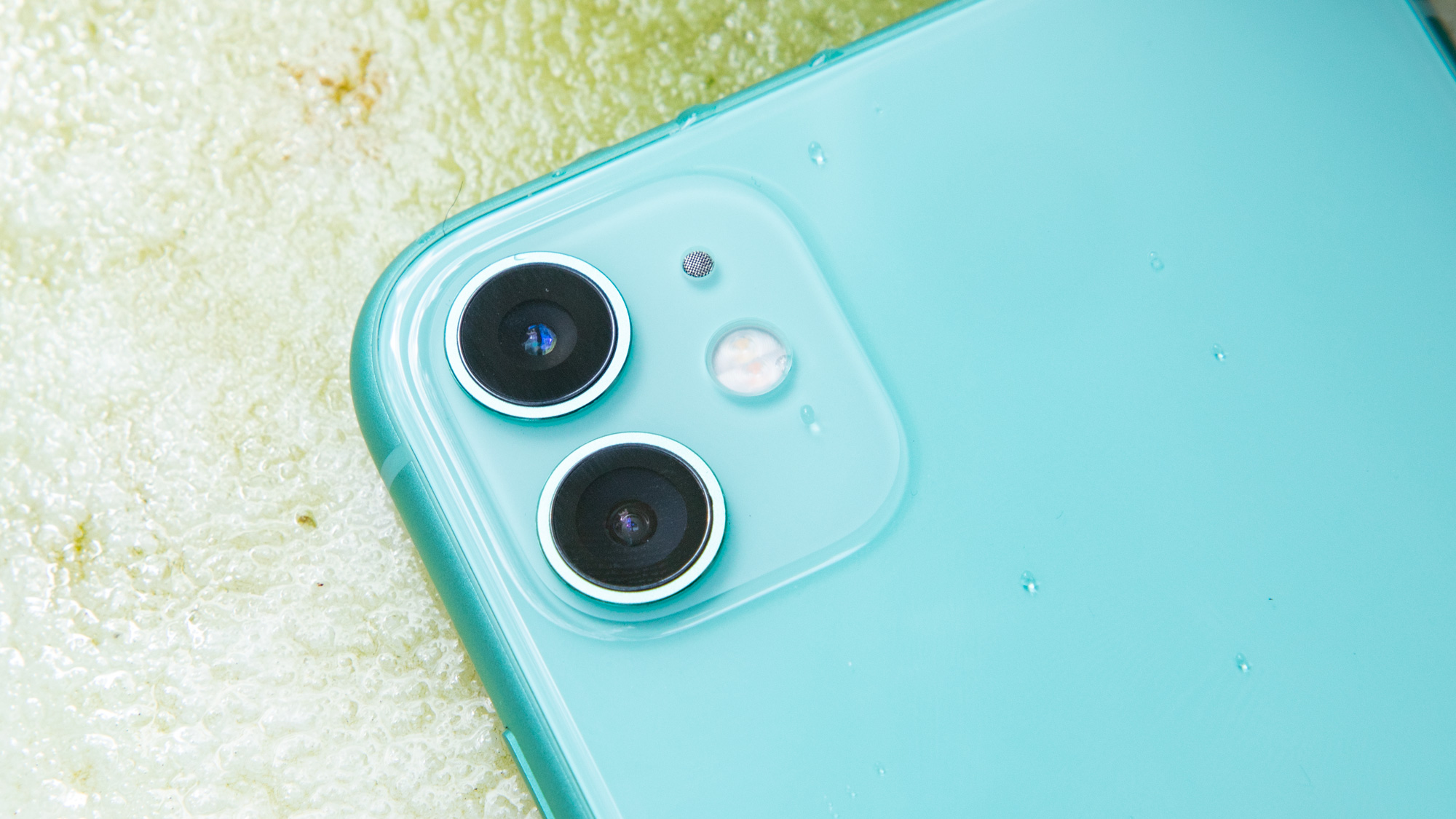
The Pixel 4 cameras have some other upgrades, including dual exposure controls (via on-screen sliders) when you're shooting, a Live HDR+ feature that lets you preview your pics in challenging lighting conditions and an improved portrait mode. Plus, the Pixel 4's Night Sight mode can now shoot the night sky, capturing the moon and stars via longer exposures.
Apple has stepped up its camera game as well, with a Night mode of its own for the iPhone 11, improved Smart HDR performance and a Deep Fusion feature that delivers remarkable detail.
Early winner: Draw
Pixel 4 vs. iPhone 11 performance
At least based on what we've seen from other Android phones with the same chip, the iPhone 11 should demolish the Pixel 4 in terms of performance. The Pixel 4 has the same Snapdragon 855 processor that has powered the likes of the Galaxy S10, Galaxy Note 10 and other Android flagships, as opposed to the slightly faster Snapdragon 855+ that graces the OnePlus 7T.
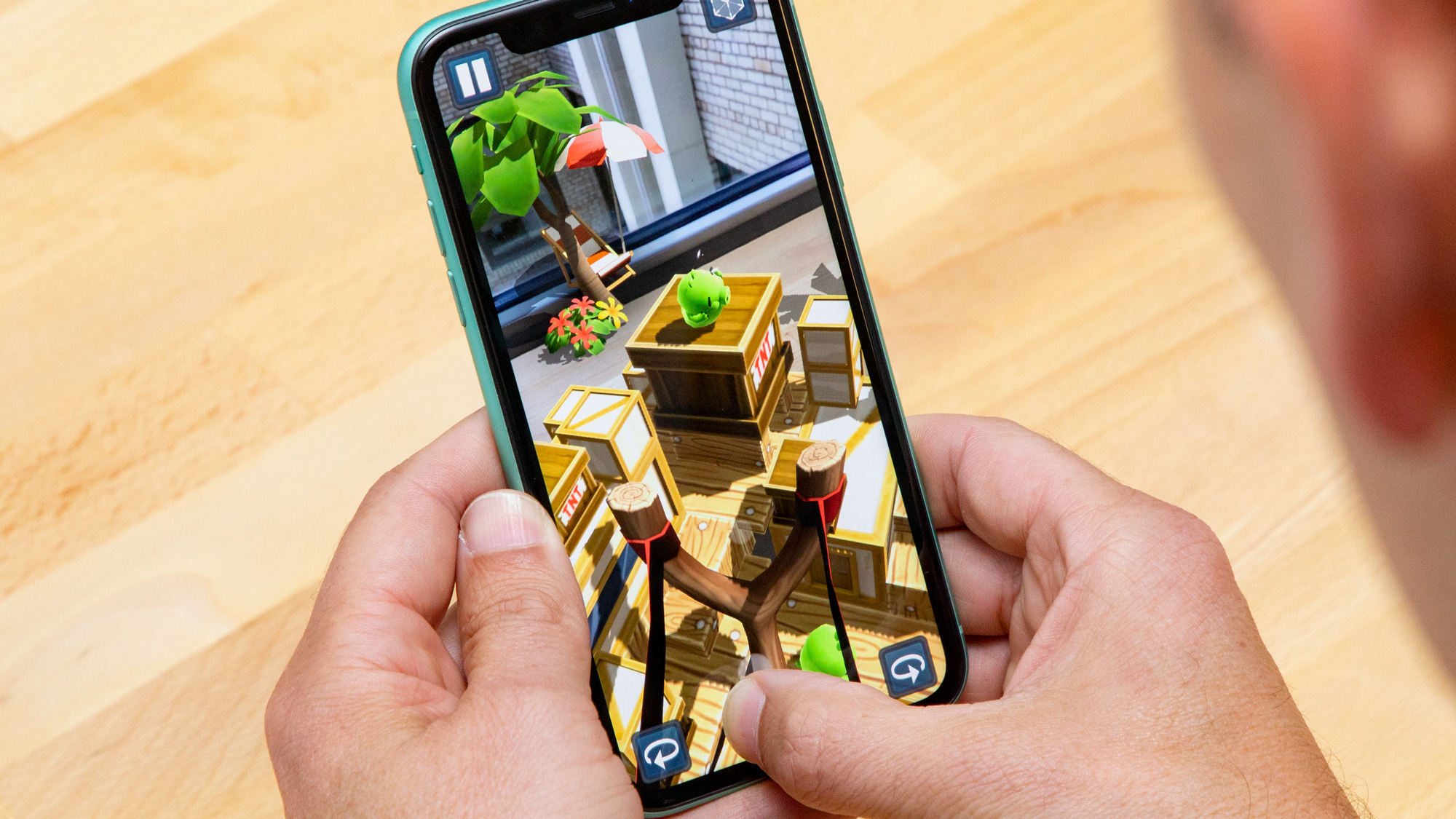
Based on our benchmarks, the A13 Bionic chip inside the iPhone 11 outclasses the Snapdragon 855 on most tests, including Geekbench 5 and GFXBench, as well as our own tests like video editing. So we don't expect anything different this time around.
It also doesn't help that the Pixel 4 has 6GB of RAM, while some Android flagships have 8GB or even 12GB. Apple is close-mouthed about how much memory it puts inside its phones, but teardowns suggest the iPhone 11 has 4GB of RAM.
Early winner: iPhone
Pixel 4 vs. iPhone 11 special features
This is where the Pixel 4 shines, starting with a Google Assistant that's faster than ever before. Because Google moved most of the language processing power onto the Pixel 4 itself, you'll get much speedier responses than you will via Siri. Plus, you can ask follow-up questions and perform follow-up actions much faster.
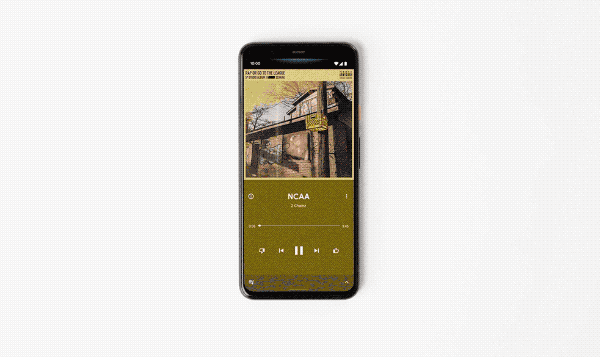
The Pixel 4 also introduces Motion Sense, which leverages a radar sensor to recognize hand gestures. You can skip music tracks, turn off alarms and more with just a wave of your hand. The Pixel 4 also uses radar to sense when you're about to pick up the phone, so its Face Unlock feature is faster than Face ID on the iPhone; you don't even have to touch the Pixel 4's screen.
Google packs smarter apps into the Pixel 4, too. The Record app can transcribe your voice recordings in real time. Plus, you can search for key phrases within your recordings and jump right to where that word was uttered.
The iPhone 11 doesn't have much in the way of special features, other than what comes with iOS 13. This includes a new Dark Mode, a much more compelling Photos app and Sign in with Apple to protect your privacy.
Early winner: Pixel 4
Pixel 4 vs. iPhone 11 battery life and charging
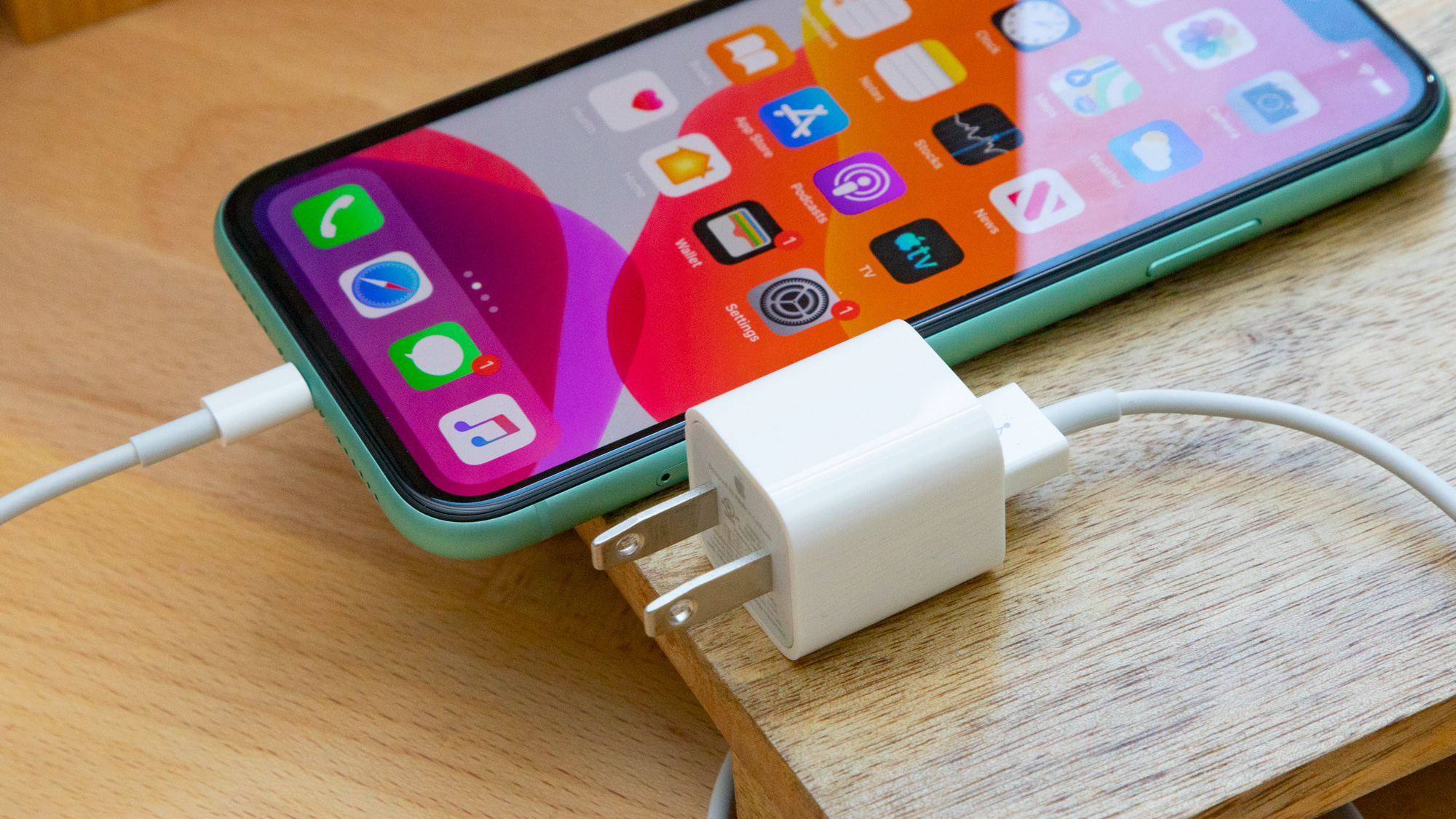
If you look at the battery capacities of the Pixel 4 and iPhone 11, the Pixel 4 is at a distinct disadvantage. The Pixel 4 has a 2,800 mAh battery, compared to 3,100 mAh for the iPhone 11.
On the Tom's Guide Battery Test, which involves continuous web surfing at 150 nits of screen brightness, the iPhone 11 averaged 11 hours and 16 minutes. We consider anything longer than 10 hours pretty good and more than 11 hours gets you on our best phone battery life list.
Last year's Pixel 3 lasted a lackluster 8 hours and 27 minutes with a larger 2,915 mAh battery, so things don't look good for Google's phone.
The good news is that the Pixel 3 ships with an 18-watt fast charger, while Apple forces you to pay extra for a fast charger for the iPhone 11.
Early winner: iPhone 11
Outlook
The Pixel 4 looks to be an impressive Android flagship phone, and it has the edge over the iPhone 11 in some key areas. It has a richer OLED display, a telephoto lens, a faster digital assistant and tons of special features that could save you time. These include a faster Face Unlock, Motion Sense gestures and Recorder app that transcribes voice recordings for you.
The Pixel 4 also looks to be one of the most advanced camera phones yet, thanks to its improved Night Sight mode, Live HDR+, dual exposure controls and other enhancements. But the iPhone 11 is no slouch in the camera department either, as it has both an impressive Night Mode of its own along with an ultra-wide camera the Pixel 4 lacks.
Where the iPhone 11 could pull ahead is performance, battery life and especially its lower price. At $699, it's hard to ignore the $100 delta between Apple's phone and Google's. But stay tuned for our final verdict after we've had a chance to fully review the Pixel 4.
Sign up to get the BEST of Tom's Guide direct to your inbox.
Get instant access to breaking news, the hottest reviews, great deals and helpful tips.
Mark Spoonauer is the global editor in chief of Tom's Guide and has covered technology for over 20 years. In addition to overseeing the direction of Tom's Guide, Mark specializes in covering all things mobile, having reviewed dozens of smartphones and other gadgets. He has spoken at key industry events and appears regularly on TV to discuss the latest trends, including Cheddar, Fox Business and other outlets. Mark was previously editor in chief of Laptop Mag, and his work has appeared in Wired, Popular Science and Inc. Follow him on Twitter at @mspoonauer.

